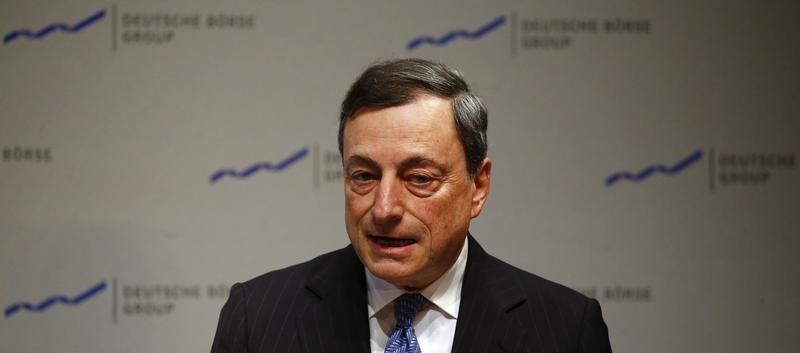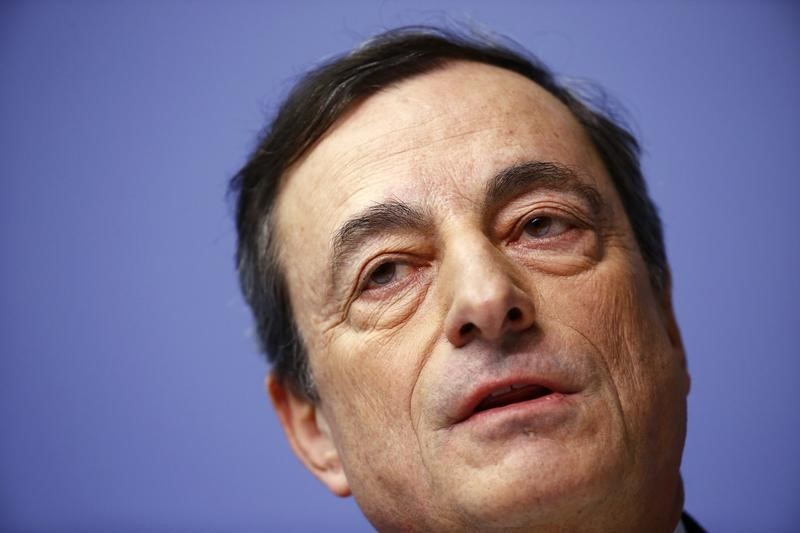By Francesco Guarascio and Balazs Koranyi
BRUSSELS/FRANKFURT (Reuters) - The European Central Bank is ready to ease policy further in March, President Mario Draghi said on Monday, highlighting risks from financial market volatility, a global slowdown in growth and low oil prices.
The ECB will examine risks emanating from weaker emerging market growth and look at whether plunging crude prices along with market turbulence could derail its efforts to boost inflation, Draghi told lawmakers in the European Parliament.
The ECB has missed its inflation target of close to 2 percent for three straight years and policymakers fear that a failure to get prices rising again would erode public confidence in the bank, rendering monetary policy ineffective and leaving Europe stuck in a trap of zero price growth.
"First, we will examine the strength of the pass-through of low imported inflation to domestic wage and price formation and to inflation expectations," Draghi said about the March 10 meeting of governors.
"Second, in the light of the recent financial turmoil, we will analyse the state of transmission of our monetary impulses by the financial system and in particular by banks," he added. "If either of these two factors entail downward risks to price stability, we will not hesitate to act."
Weeks of heightened market volatility has reversed much of the impact of the ECB's December easing, increasing pressure on the bank to ease further in March.
"Draghi moved beyond just the economic risks to the ECB’s forecasts - and included financial volatility and weakness of banks as a trigger for policy expansion," Citi strategist Richard Cochinos said.
Previous warnings focussed on risks to price stability but an over 20 percent fall in euro zone banking shares (SX7E) since the start of the year could raise the cost of capital for banks, potentially holding back lending and reducing the effectiveness of the ECB's 1.5 trillion euro ($1.7 trillion) quantitative easing scheme.
The euro <EUR=> weakened on Draghi's comments but remains 2.5 percent stronger compared to the start of the year, cutting imported inflation and unwinding some of the ECB's easing efforts.
Although Draghi acknowledged challenges in the bank sector and said the stock price tumble also reflected a weaker-than-expected economic outlook, he said the sector was stronger at the height of Europe's crisis.
"The situation in the banking sector now is very different from what it was in 2012," Draghi said. "Perhaps most importantly, euro area banks have significantly strengthened their capital positions over the past few years, notably as a consequence of the Comprehensive Assessment conducted in 2014."
Dismissing criticism that the ECB was running out of ammunition, Draghi said it had enough instruments at hand and quantitative easing was flexible enough.
In December, the ECB cut its deposit rate by 10 basis points to -0.3 percent and extended its asset buying programme by six months, taking it to 1.5 trillion euros.

Markets now price in at least two rate cuts, taking the deposit rate to -0.50 percent by the end of the year from -0.3 percent.
